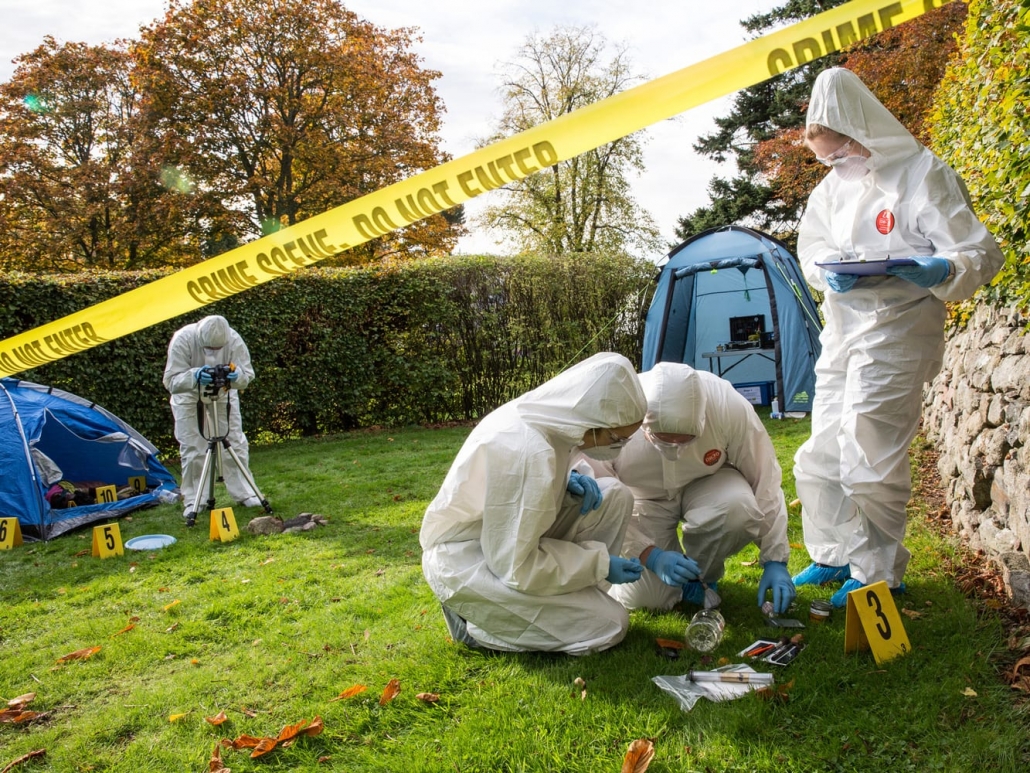What Makes Crime Scenes Complex
Crime scenes can be complicated for many reasons. Sometimes, they involve serious crimes with lots of evidence to collect. This might include things like blood, weapons, or other dangerous items. When a crime happens in a big area or involves many locations, it becomes even more complex.
Different types of crimes, like violent acts or those involving chemicals, can also add to the difficulty. These factors make it hard for investigators and cleanup teams to do their jobs quickly. They have to be very careful to collect evidence without disturbing anything. Knowing what makes a crime scene complex helps us understand why it takes time and special care to handle these situations properly.
Factors That Contribute To Complexity
Several things make a crime scene more complicated. One big factor is the need for biohazard cleaning. This is necessary when there is blood, bodily fluids, or other dangerous materials. The size of the area where the crime happened also matters—larger areas take more time and effort to clean up if the crime involves many people or different types of evidence, which adds to the complexity.
Another factor is the need to protect and collect evidence carefully, which requires special skills and tools. All these things together make some crime scenes very difficult to manage and clean.
Related: What Types Of Crime Scenes Do Cleaners Handle?
Common Challenges In Complex Crime Scenes
When cleaning up a complex crime scene, there are many challenges. One of the biggest is dealing with hazardous materials like blood or other bodily fluids, which can be dangerous if not handled properly. Another challenge is making sure that important evidence isn't disturbed while cleaning the scene. This means cleaners must be very careful and use special techniques.
Emotional challenges can also arise, especially if the crime was violent or involved someone the cleaners knew. Additionally, larger crime scenes, or those in many locations, take more time and effort to clean. These challenges show why specialized skills and tools are needed for complex crime scenes.
Assessing The Scene Before Cleanup
Before starting to clean a crime scene, it’s important to carefully assess the area. This means looking at everything in the scene to identify any hazards, such as biohazards, sharp objects, or structural damage. It also involves understanding how bad the contamination is and deciding what needs to be cleaned or removed.
A good assessment helps plan the cleanup process better and makes sure that everything needed is on hand before starting. It also ensures a safe, thorough cleanup. It won't miss any important steps or areas.
Related: What Is The Process Of Crime Scene Cleaning?
Gathering The Right Cleaning Supplies
Having the right cleaning supplies is very important when cleaning a crime scene. These supplies include protective gear like gloves, masks, and suits to keep the cleaners safe from harmful substances. Cleaning agents are needed to disinfect surfaces and remove any biohazards. Tools like brushes, mops, and buckets are also necessary for thorough cleaning.
In more serious cases, special equipment like biohazard bags might be needed to safely dispose of dangerous materials. Read everything before starting the cleanup. This will ensure a smooth and safe process. It will protect everyone and guarantee that the scene is clean.
Ensuring Safety During The Cleanup Process
Safety is the most important thing when cleaning a crime scene. Those involved must wear protective gear, like gloves, masks, and suits. It will protect them from dangerous materials. It’s also important to follow rules and procedures set by crime scene cleanup services to make sure the area is cleaned correctly. Special cleaning agents may be needed to disinfect surfaces and remove any biohazards.
Additionally, cleaners should be aware that the work can be emotionally difficult, and they should seek help if needed. Making sure that everyone stays safe during the cleanup process is key to completing the job.

Step-By-Step Crime Scene Cleaning Guide
Cleaning a crime scene involves several careful steps. First, the area is secured to make sure no one who shouldn't be there can enter. Next, visible debris and sharp objects are removed safely. After that, all surfaces are cleaned and disinfected, starting from the top and working downward to ensure that nothing is missed. Special cleaning agents are used to remove biohazards and other contaminants. Once everything is cleaned, the area is checked to make sure no hazards remain. Finally, all waste from the cleanup is disposed of properly. It follows local laws to ensure safety and prevent contamination.
Related: How To Disinfect Crime Scenes A Professional Guide?
Proper Disposal Of Hazardous Materials
When cleaning a crime scene, it’s important to properly dispose of hazardous materials. Items like gloves, wipes, and other cleaning supplies are important. Those that come into contact with blood or bodily fluids need to be placed in biohazard waste disposal containers. These containers are designed to keep the hazardous materials contained and must be handled with care.
The waste is then taken to a special facility that knows how to safely dispose of biohazardous materials. Proper disposal is vital for the cleaners' safety and the environment. It ensures that no harmful materials are left behind.
Decontaminating And Sanitizing The Area
After removing visible debris and biohazardous materials, decontaminate and sanitize the area. This means using strong disinfectants to kill any remaining bacteria, viruses, or other harmful germs. All surfaces, including floors, walls, and ceilings, need to be cleaned to make sure the area is safe again.
Special attention is given to areas where biohazards were found, as these are most likely to still have dangerous pathogens. This step is crucial in restoring the area to a safe, clean state where people can live or work without fear of contamination or health risks.
Related: 10 Must Have Supplies For Crime Scene Cleaning
Real Life Examples Of Crime Scene Complex
There are many real-life examples of complex crime scenes that show how challenging these situations can be. For instance, a crime scene involving many victims with a lot of blood would need extensive cleanup and biohazard waste disposal. Another example might be a crime that happened in a large public space, where cleaning up every surface would be a big job.
Sometimes, there are difficulties, like when drugs or chemicals are found at the scene, which need special handling. These examples show why we need professionals for the cleanup. They have the skills and tools for even the toughest crime scenes.
